
Fast, affordable Internet access for all.


Episode 591 of the Community Broadband Bits Podcast features a panel from Net Inclusion that Christopher Mitchell moderated entitled, "Without Political Power, There is No Path to Digital Equity." In it, panelists raise difficult questions for the digital equity movement about whether they are on track to achieve their goals - whether the main strategies used today can result in digital equity or are destined to fall well short.
Panelists include Melanie Silva, COO of Hinton & Company in Chattanooga; Shayna Englin, Director of the Digital Equity Initiative at the California Community Foundation; Joshua Edmonds, CEO of Digital C in Cleveland; and Dan Ryan, Vice-Chair of the Enterprise Center in Chattanooga.
The discussion includes constructive criticism of the movement for digital equity, as well as more specific criticism of the decision to move the Net Inclusion conference from Chattanooga to Philadelphia. That decision was entangled with - and justified by - the concerns of some regarding safety in the wake of attempts in the Tennessee Legislature to revoke the rights of Transgender individuals, among others. The panel felt it was important not to ignore those issues as we wrangled with the larger issue of building a better society with more rights and opportunities for everyone.
We hope you find this discussion useful and respectful of the larger movement despite disagreements on some important issues.
This show is 93 minutes long and can be played on this page or using the podcast app of your choice with this feed.
Transcript below.
We want your feedback and suggestions for the show: please e-mail us or leave a comment below.
Listen to other episodes here or see other podcasts from the Institute for Local Self-Reliance here.
Thanks to Arne Huseby for the music. The song is Warm Duck Shuffle and is licensed under a Creative Commons Attribution (3.0) license.
Martinsville, Virginia has technically owned a municipal fiber network for the better part of a generation. But the city never had the time, resources, or interest in maximizing the Municipal Internet Network’s (MINet) full potential until COVID demonstrated the importance of affordable access and federal broadband grants made expansion a viable reality.
At a Martinsville city council meeting on February 13, the council offered unanimous support for a phased expansion of the city’s fiber network.
What exactly the expansion will look like, and how it will be funded, very much remain a work in progress.
The core MINet fiber network originally consisted of 48 strands and 20 miles of fiber connecting city schools, municipal buildings, local businesses, and key anchor institutions. A 2009 estimate indicates the network has saved the city between $100,000 and $150,000 annually on telecom lease agreements every year since its inception.
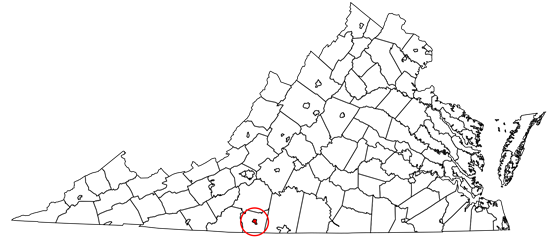
Despite having been first constructed in the 1990s, Martinsville’s MINet only has about 376 customers (98 of them being residential) in a city of nearly 14,000 residents. There’s roughly 20 users currently on a multi-month waiting list, eager to get access to affordable fiber at speeds up to a gigabit per second (Gbps).
Mike Scaffidi has been the MINet director for 26 years. He tells ILSR that while the city has contemplated network expansion for a long time, the city never had the staff or resources to prioritize the expansion or marketing of the city-owned fiber network.
Golden, Colorado has struck a new right-of-way agreement with Google Fiber that should expedite the competitive delivery of affordable fiber to the city of 20,000.
The deal gives Google Fiber non-exclusive access to public right-of-way to build a commercial broadband network, though it delivers no guarantee of uniform access across the entire city.
In a memo to the Golden City Council, Chief Innovation and Technology Officer Jiles McCoy said the city’s new agreement “would act as a template for any future companies wishing to build broadband services in the Golden right of way.”
The move comes after years of discussion in the city as to how to improve local broadband competition, reduce prices, and expand affordable access.
In 2016, Golden residents voted to opt out of a now defunct state law, ghost written by regional broadband monopolies, restricting the construction and operation of community owned and operated broadband networks. Last year Colorado leaders finally eliminated the law completely, opening the door to greater expansion of community-owned networks.
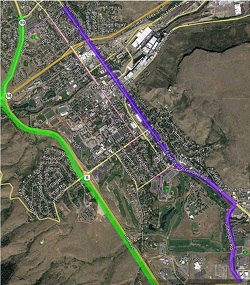
In 2019 the city completed a feasibility study showing that the construction of a full city-owned fiber network would cost $37 million. Instead of tackling the entire project at once, advisers recommended the city proceed in phases, beginning with the construction of a $3.8 million, 10.5 mile fiber ring connecting key community anchor institutions.
The Idaho Broadband Advisory Board (BAB) has greenlit $120 million in broadband grants from the Idaho Capital Projects Fund (CPF) to fund 18 different broadband projects across Idaho, delivering affordable fiber access to 30,000 homes and businesses, many for the first time.
It’s the latest round of funding made possible by the American Rescue Plan Act, passed in 2021 to help soften the impact of COVID. A breakdown of the finalized awards indicate 18 different providers received funding from BAB, including a $9.8 million award to Comcast and more than $11 million to Ziply Fiber.
“These awarded projects are another important step in furthering the Idaho Broadband Advisory Board’s mission of ensuring that all Idahoans have access to affordable and reliable internet,” Idaho Broadband Advisory Board Chair, Representative John Vander Woude said in a prepared statement. “These projects will connect homes and businesses across the entire State.”
Seven of the award recipients were individual counties pursuing varying options to shore up access to largely rural unserved and underserved residents.
UTOPIA Fiber has completed its fourth major broadband deployment of 2023, with the finished construction of a $23.5 million citywide fiber-to-the-home (FTTH) build in Syracuse, Utah (est. pop. 33,000).
Network construction began November 30, 2021, and its first customer was connected on September 12, 2023. UTOPIA officials say the new Syracuse network passes 12,324 residential addresses, and has already reached a nearly 16% subscriber take rate in the city.
UTOPIA, shorthand for Utah Telecommunication Open Infrastructure Agency, is a collaboration between 11 Utah cities that joined together in 2004 to build, deploy and operate a fiber network that reaches every last home and business in its territory. Since 2009, UTOPIA’s expansion has been funded entirely by subscriber revenues.
Despite some early lawsuits by regional monopolies like Qwest (now Centurylink/Lumen) designed to kill the project before it could get a foothold, UTOPIA has not only survived but thrived, and its success has been transformative for large swaths of the Beehive State.
Syracuse – like many U.S. communities – had been consistently underserved by a duopoly of Comcast and Centurylink (Lumen). That lack of competition consistently results in sluggish, expensive, spotty broadband service, and substandard customer service. Now, locals have access to a variety of far more affordable options thanks to a menu of UTOPIA partner ISPs.
Knoxville, Tennessee's Knoxville Utility Board (KUB) says it has completed the first phase of its ambitious broadband deployment, bringing affordable fiber access to more than 50,000 premises in this city of 192,000 – many for the very first time.
When we last wrote about KUB back in 2021, the city's utility had just received approval to build what will eventually be the biggest municipal broadband network in the U.S.
All told, the $702 million project, known as KUB Fiber, aims to deliver affordable fiber to 210,000 households across KUB’s 688-square-mile service area, taking between seven and ten years to complete.
KUB says that the first phase of fiber deployment involved the installation of more than 1,100 miles of fiber infrastructure. Upgraded users have the option of three tiers of service: symmetrical gigabit per second (Gbps) service for $65 a month; symmetrical 2.5 Gbps service for $150 a month; and symmetrical 10 Gbps service for $300 a month.
KUB’s service tiers do not come with usage caps or long-term contracts. Unlike many municipal operations, KUB is also offering locals the option of bundling television service.
KUB was driven to expand access after more than a decade of local frustration at the slow speeds, high prices, and spotty coverage caused by a notable lack of competition between regional telecom monopolies, AT&T and Comcast (Xfinity). Both companies have attempted to lock down customers via long-term contracts ahead of the network’s completion.
As one local resident said:
“Comcast thanked me for being a customer for 23 years, but it's not because I've had the option to go anywhere else. They have had 23 years to fix these problems and they haven't."
Blue River, Colorado (est. pop. 882) is the latest Colorado municipality to explore building its own broadband network with an eye on affordable access. The town is part of a trend that’s only accelerated since the state eliminated industry-backed state level protections restricting community-owned broadband networks.
Just south of Breckenridge in the central part of the state, Blue River is nestled in one of the more rural parts of Summit County. Comcast (Xfinity) enjoys a broadband monopoly, resulting in spotty access, slow speeds, and high prices. Locals also routinely complain that cell phone service remains spotty in much of the mountainous area.
In response, town leaders recently hired the consulting firm, NEO Connect, to explore the possibility of building a town-wide fiber network. According to a feasibility study presented to the Blue River Board of Trustees by Mayor Toby Babich, the construction of a fiber network serving every town resident will cost somewhere in the neighborhood of $13 million.
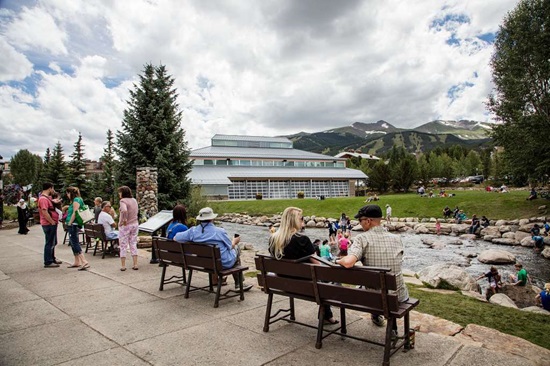
While that “may seem out of reach,” Babich recently told the board, “we believe with the right funding and partnership we can move forward with this project.”
The estimates for network construction range somewhere between $7 million to $24 million, depending on how much underground trenching work is required.
Memphis Mayor Jim Strickland has introduced an ambitious new plan to incentivize private telecom providers to deliver affordable fiber to 85 percent of the Tennessee city of 633,000. The project, part of the city’s Memphis 3.0 master plan, will spend more than $700 million to expand broadband in a city where less than a quarter of residents–most of them wealthy–have access to next-generation fiber.
On September 23, city leaders introduced a new city ordinance amendment establishing new, streamlined permitting and fee requirements. Their goal: to incentivize companies willing to expand fiber optic broadband to at least 60 percent of Memphis’ residential and business premises and 60 percent of all existing low-income premises.
Not long after, city leaders unveiled more details about their "Smart Memphis Fiber" effort. After issuing an RFP last year, Memphis officials say they’ve struck a partnership with Paris-based Meridiam and Blue Suede Network to build a $700 million fiber optic network with an eye on eventually reaching 85 percent of the total Memphis population.
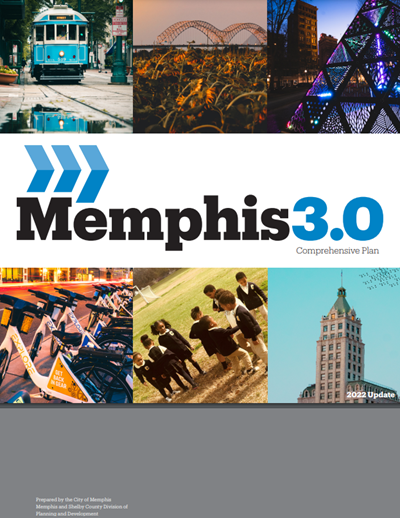
“City Government will incentivize any interested company by reducing our costs through reductions in permitting fees and right-of-way fees,” Strickland said in a recent presentation before the city council. “Additionally, we will streamline our process to allow a company to get to work faster. We are also putting our own skin in the game.”
The city of Scranton, Pennsylvania has issued a request for qualifications (RFQ) for vendors that may be tasked with constructing an affordable citywide fiber network. City leaders say the RFQ is the opening chapter in a bid to bring affordable broadband access to city residents long neglected by dominant regional monopolies.
According to the full RFQ, officials are looking for partner companies capable of building a citywide network capable of providing 1 Gbps (gigabit per second) download and upload speeds to all premises in the City of Scranton, as well as expanded fiber access for city municipal services and key anchor institutions.
“The City does not require municipal ownership of the fiber or a City operational role,” the RFQ states. “However, the City does request connectivity to certain City sites, a 40-year indefeasible right of use (IRU) for 12 strands of fiber for municipal noncommercial purposes throughout the network, and an access and maintenance agreement governing these strands.”
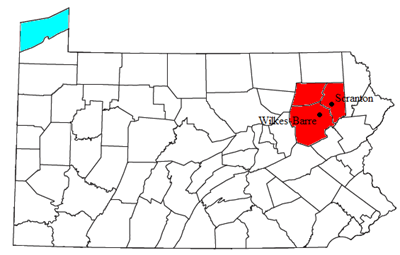
As with so many U.S. markets, broadband competition in Scranton is hard to come by. The market is largely dominated by either Comcast Xfinity or Verizon, the latter of which has been heavily criticized by unions and consumer groups for failing to uniformly upgrade its aging DSL network to fiber, and failing to repair aging lines on a timely basis.
This lack of meaningful competition results in slow broadband speeds, spotty coverage, substandard customer service, and significantly higher prices. Even then, the city hasn’t been without signs of life in the marketplace.
With the Affordable Connectivity Program (ACP) poised to run out of funding in early Q2 next year, and no funding source lined up to keep the program alive, a recent U.S. News & World Report survey underscores the significance of the program in the face of rising prices from the nation’s major Internet Service Providers (ISPs).
The ACP offers a monthly benefit of $30 dollars for qualifying households and $75 for qualifying households on Tribal lands (as well as in some remote areas). Over 20 million Americans to date have enrolled in the program to help pay their Internet service bills, but with the $14.2 billion ACP program on track to run dry as soon as May of next year – even amid a historic national effort to establish “Internet For All” – the affordability crisis has become more worrisome for a growing number of Americans.
U.S. News & World Report’s survey found that Internet prices are going up and that families are compromising other expenses to pay for connectivity, affirming the urgency among digital equity advocates to identify a source of continued funding for ACP, as well as push for more structural solutions that address the root causes of why Americans pay among the highest prices for broadband service in the developed world.